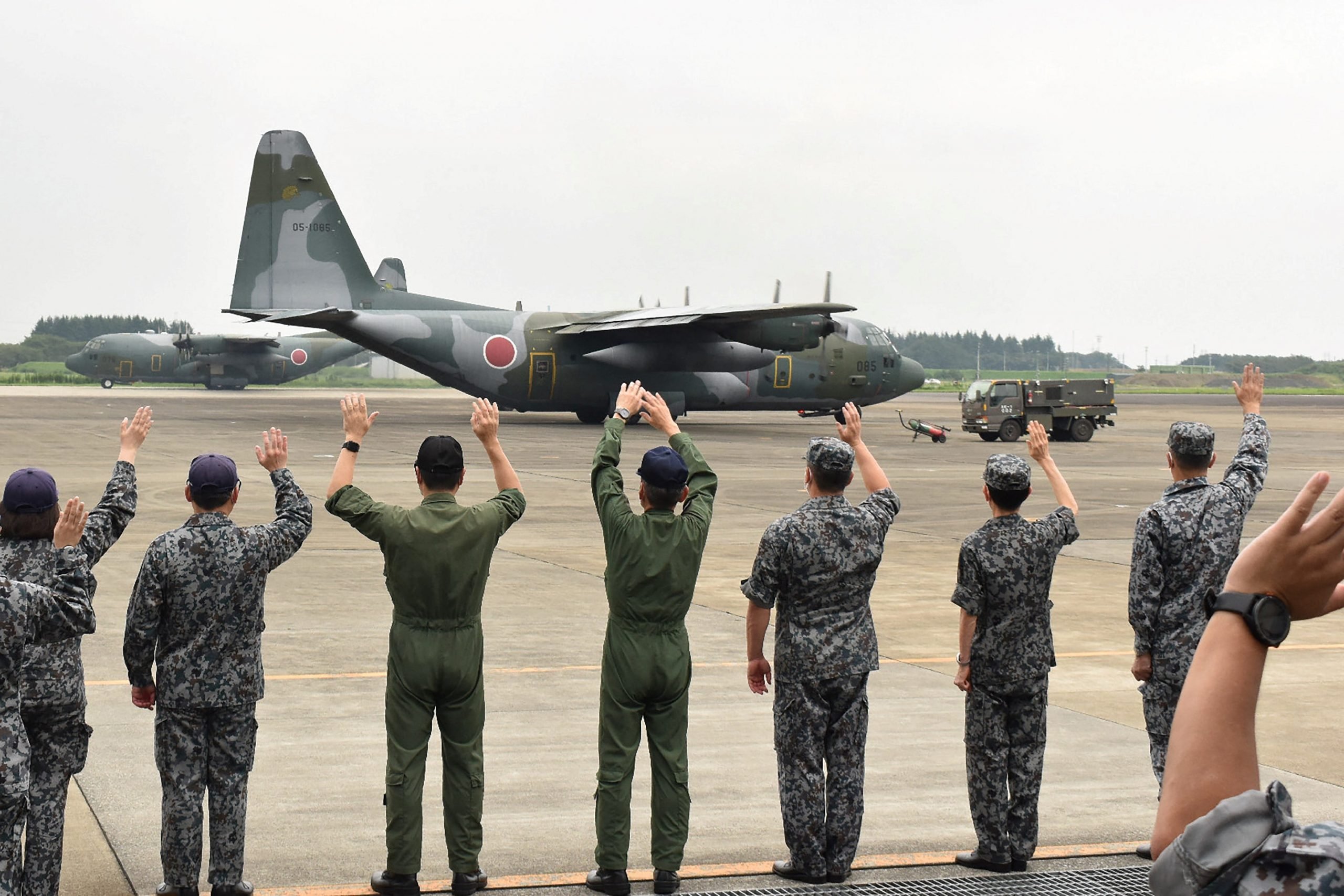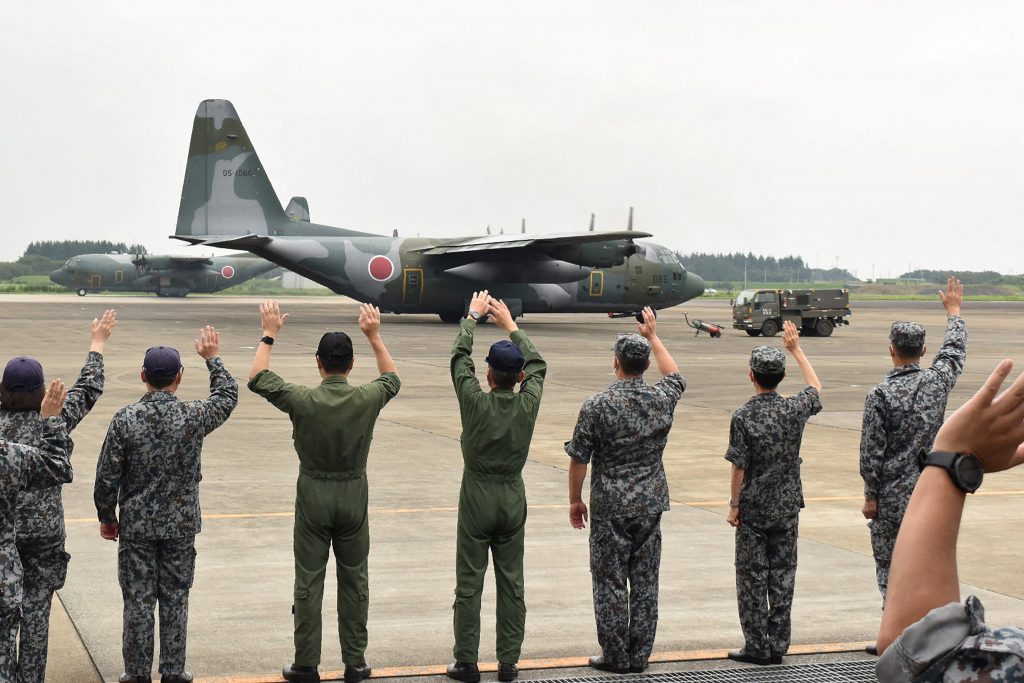
STR/JIJI PRESS/AFP via Getty Images
- Japan's botched evacuation plan rescued only one person out of a planned 500 or so.
- Hundreds of its evacuees are stranded in Afghanistan after the deadly explosions on Thursday canceled a mass evacuation effort.
- Critics say Japan was too quick to pull its staff out of Afghanistan without helping the locals it had worked with.
- Visit Insider's homepage for more stories.
When the last of Japan's evacuation flights departed Kabul last Friday, only one evacuee was on board – a Japanese reporter for Kyodo News.
She was the sole person rescued out of the initial 500 or so Afghans and Japanese nationals who were slated to leave in Japan's botched evacuation plan, according to a diplomatic source who spoke to Kyodo News.
The plan was impeded by legal restrictions and difficulties getting evacuees to the Kabul airport, per news outlet Asahi Shimbun.
Hundreds of its evacuees, including Afghans who worked with the Japanese government, had piled onto buses preparing to leave for Kabul airport last Thursday, reported Yomiuri Shimbun. But deadly attacks near the airport on the same day that killed 169 Afghans and 13 US service members forced the evacuation to be canceled.
Japan's Self-Defense Forces dispatched three transport planes for the rescue effort, but most of the evacuees were nowhere to be seen by the time they arrived.
When Japan ended its official evacuation plan on Friday and its aircraft left Afghanistan, it had only managed to send 14 Afghans to Pakistan at the US's request (who were not part of Japan's initial list of 500 evacuees) and save 57-year-old reporter Hiromi Yasui. The rest of its evacuees are still stranded in Afghanistan.
"If there hadn't been an explosion, all of us could have made it to the airport," Yasui told Yomiuri Shimbun.
The Tokyo government said it would continue efforts to help those who wished to escape Afghanistan, though it did not specify how it would do so, according to The Japan Times. It declined to say how many Japanese nationals are still in Afghanistan but told The Times that a small number remain in the country as they do not wish to leave.
Legal restrictions hindered evacuation
Tokyo's struggle to get evacuees to Kabul airport was largely complicated by its legal restrictions for its forces overseas. According to Nikkei Asia, the Japanese government barred its forces from operating outside the Kabul airport, meaning evacuees had to make their own way to the flights through a myriad of Taliban checkpoints.
In contrast, other countries like the US and Germany used helicopters to transport evacuees to the Hamid Karzai International Airport.
Japan's limited operation in Kabul is due to its peaceful post-World War II constitution, which states that it cannot use military force overseas as part of its renunciation of war.
One section of Japan's Self-Defence Forces Act allows it to use force if necessary to protect Japanese nationals abroad, but it must get permission from the host country first, which is unlikely with a Taliban-controlled Afghanistan. However, Japan has in the past tweaked its interpretation of its constitution to answer for sending forces to other countries, such as when it supported the US in Iraq with 600 ground troops.
Critics said the Japanese government's evacuation efforts have been poor compared to other countries, which helped thousands of refugees flee Afghanistan after the Taliban took Kabul earlier this month. Analysts also said Japan was too quick in withdrawing its staff from Afghanistan, referring to when it evacuated Japanese diplomats on August 17, leaving behind the Afghans who worked with them for decades.
"They were too hasty in pulling out embassy staff without deciding how to handle the Afghans who had been working there," said Kazuto Suzuki, a professor at the University of Tokyo, to Nikkei.
"It's clear that Japan was not well prepared or coordinated when it needed to be, and its effort is more of a gesture to show that it was playing its part," said Jeff Kingston, director of Asian studies at the Tokyo campus of Temple University, to the South China Morning Post.
One 40-year-old Afghan who was among the evacuees told Yomiuri that he had been threatened and followed by the Taliban for his role with the Japanese International Cooperation Agency.
"The Japanese government failed to take me out in time. I can't think of any other way to leave this country. I'm in danger," he said.
Japan's Foreign Ministry did not immediately respond to Insider's request for comment.
